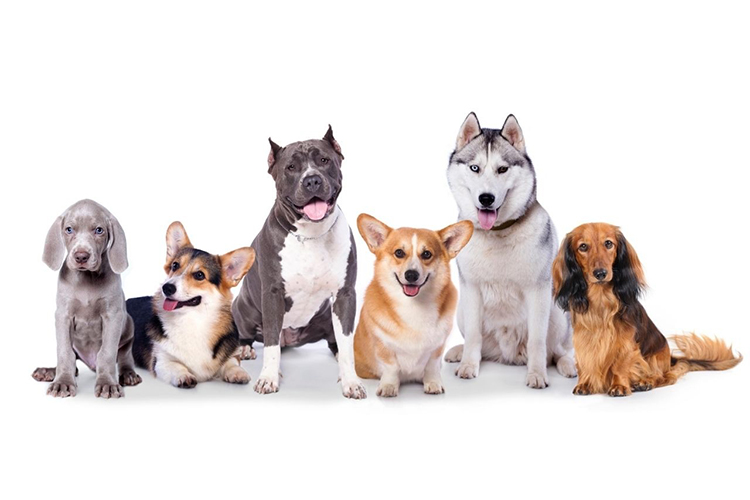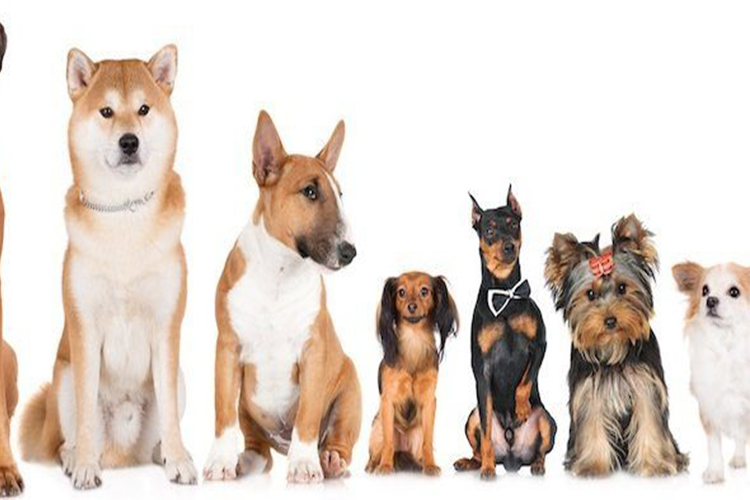Dogs are often referred to as man’s best friend, and for good reason. They are loyal, affectionate, and make great companions. However, with so many breeds to choose from, it can be challenging to determine which one is right for you. In this article, we will discuss some important factors to consider when selecting a breed of dog.
Lifestyle and living situation
The first factor to consider is your lifestyle and living situation. Some breeds require a lot of exercise and space to run around, while others are more content with just a daily walk. If you live in an apartment, for example, a small breed like a Chihuahua or a Pomeranian might be a better fit. On the other hand, if you have a large backyard and enjoy outdoor activities, a breed like a Labrador Retriever or a German Shepherd might be a better fit.

Temperament
The temperament of the dog is also an essential factor to consider. Different breeds have different temperaments, and some are better suited for certain lifestyles and living situations than others. For example, some breeds are naturally more aggressive, while others are more relaxed and easy-going. If you have small children or other pets, it is essential to choose a breed that is known for being gentle and patient.
Grooming needs
Another important factor to consider when selecting a breed of dog is the grooming needs. Some breeds require a lot of grooming and upkeep, while others are relatively low maintenance. For example, breeds like the Poodle or the Bichon Frise require frequent grooming to keep their fur from matting and tangling. On the other hand, breeds like the Beagle or the Boxer have short hair and require minimal grooming.
Health concerns
It’s also important to research any potential health concerns associated with a particular breed. Some breeds are prone to certain health conditions, such as hip dysplasia or allergies. While it’s impossible to predict the health of any individual dog, choosing a breed with fewer known health problems can help reduce the likelihood of costly medical bills down the line.
Breed purpose
Finally, consider the original purpose of the breed. Different breeds were bred for different purposes, such as hunting, herding, or guarding. While many breeds have evolved beyond their original purpose, some still retain certain instincts and behaviors. For example, a breed like the Border Collie is highly intelligent and excels at herding, while a breed like the Great Dane was bred for guarding.
Training and socialization
Different breeds have varying levels of trainability and socialization needs. Some breeds are naturally obedient and easy to train, while others can be more independent and stubborn. If you’re a first-time dog owner or prefer a dog that’s easy to train, you might consider breeds like the Golden Retriever or the Labrador Retriever. However, if you enjoy a challenge and have experience training dogs, breeds like the Siberian Husky or the Afghan Hound might be more your style.
Energy level
Energy level is another important factor to consider when choosing a breed of dog. Some breeds are high-energy and require a lot of exercise and mental stimulation, while others are more relaxed and low-key. If you’re an active person who enjoys outdoor activities like hiking or running, you might prefer a breed like the Australian Shepherd or the Jack Russell Terrier. On the other hand, if you prefer a more laid-back lifestyle, a breed like the Bulldog or the Basset Hound might be a better fit.

Size
Size is another important consideration when choosing a breed of dog. Some people prefer smaller breeds that are easier to handle and require less space, while others prefer larger breeds that can offer more protection and make a bigger impact. If you have small children, a larger breed might not be the best choice, as they could accidentally knock the child over. However, if you’re looking for a dog to guard your home, a larger breed like the Rottweiler or the Doberman Pinscher might be more suitable.
Age
Finally, consider the age of the dog you’re interested in. Puppies require a lot of time and attention, as they need to be housebroken, trained, and socialized. If you don’t have the time or patience for a puppy, you might consider adopting an older dog. Senior dogs can be just as loving and loyal as puppies, and they often have less energy and fewer training needs.
There are many breeds of dogs, each with their own unique characteristics, temperament, and appearance. Here are some examples of popular dog breeds:
- Labrador Retriever
- German Shepherd
- Golden Retriever
- Bulldog
- Beagle
- Poodle
- Rottweiler
- Boxer
- Yorkshire Terrier
- Dachshund
- Siberian Husky
- Chihuahua
- Great Dane
- Doberman Pinscher
- Border Collie
- Shih Tzu
- Australian Shepherd
- Jack Russell Terrier
- Bichon Frise
- Cavalier King Charles Spaniel
These are just a few examples of the many dog breeds that exist. Each breed has its own set of characteristics and traits that make it unique. When choosing a breed of dog, it’s important to do your research and consider factors like size, energy level, temperament, and grooming needs to ensure that you find a breed that’s a good match for you and your lifestyle.

Consider Your Lifestyle:
Your lifestyle is an essential factor to consider when choosing a breed of dog. Think about the space you have, whether you have children or other pets, and how active you are.
Small Spaces:
If you live in a small apartment, you might want to consider a smaller breed like a Chihuahua, a Pug, or a French Bulldog, as they require less space to move around.
Big Spaces:
If you have a big backyard, you might consider a larger breed like a Labrador Retriever or a Golden Retriever, as they need space to exercise.
Energy Levels:
Consider the dog’s energy level. Some breeds are more active and require lots of exercise, while others are happy with a daily walk around the block.
High Energy:
If you are an active person, you might want to consider a high-energy breed like a Border Collie or a Australian Shepherd.
Low Energy:
If you prefer to relax at home, you might want to consider a low-energy breed like a Basset Hound or a Bulldog.
Health Concerns:
Every breed of dog is susceptible to different health issues. Research the breed you’re interested in and talk to a veterinarian to determine any potential health issues.

Family Friendly:
If you have children, you need to consider a breed that is good with kids. Breeds like the Beagle, Boxer, and Bulldog are known to be great family pets.
Other Pets:
If you have other pets, consider a breed that gets along well with other animals. Breeds like the Golden Retriever and the Labrador Retriever are known for their friendly and adaptable personalities.
Conclusion:
Choosing the right breed of dog is essential for a happy and healthy relationship between you and your furry friend. Consider your lifestyle, the dog’s energy level, health concerns, and family and pet friendliness when making your decision. Research the breed you’re interested in and talk to a veterinarian to determine the best fit for you.












